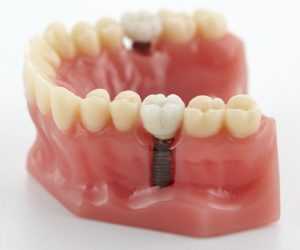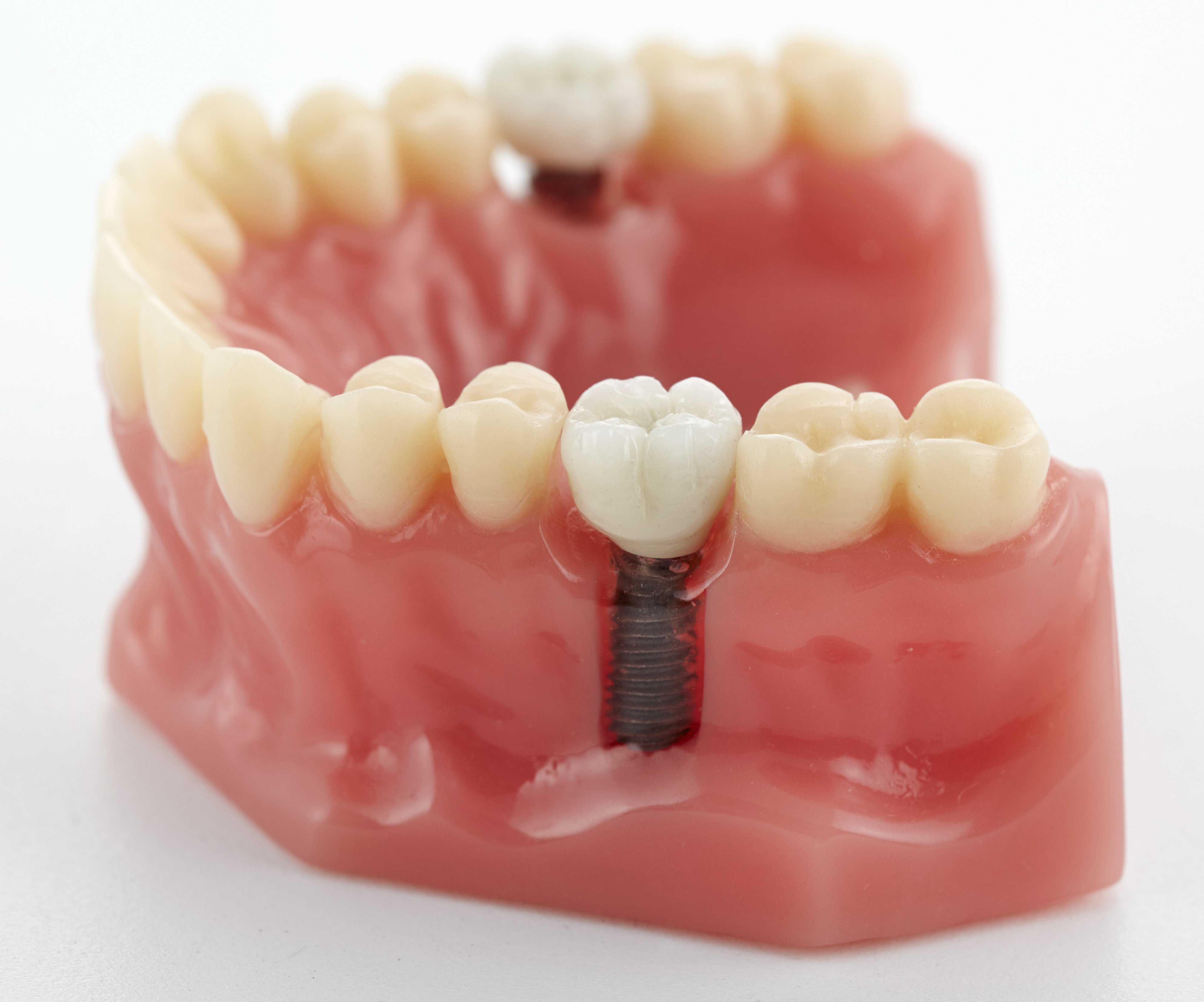Disclaimer: This website provides health information for educational purposes only and is not a substitute for professional medical advice, diagnosis, or treatment. Always seek the guidance of a qualified healthcare provider with any questions you may have.
 A dental implant can provide an efficient solution to your missing teeth. They will renew the function of your teeth to their natural state, to a time when eating and speaking was easier. Dental implants provide a stable anchor to which prosthetic teeth replacements can be attached to, as the implants themselves are securely embedded and anchored directly into the jawbone.
A dental implant can provide an efficient solution to your missing teeth. They will renew the function of your teeth to their natural state, to a time when eating and speaking was easier. Dental implants provide a stable anchor to which prosthetic teeth replacements can be attached to, as the implants themselves are securely embedded and anchored directly into the jawbone.
Having dental implants fitted can be a lengthy and complex procedure so make sure you consult with a dentist with an established track record in implant dentistry, such as those at Hertford Dental Care.
There are many different kinds of dental implants available – let’s take a look at one commonly used type.
Dentsply dental implants
Dentsply dental implants are backed by more than 20 years of clinical research. It continues to be one of the most highly regarded and trusted dental implant systems in the world. The shaped connection of the Dentsply Implants are proven to provide initial and long term stability. As well as this they are also designed to be bacteria proof. Dentsply Implants can also prevent bone resorption.
All implants are precision-made in Germany and are known throughout the world for their outstanding quality. As well as this they are made of pure titanium, which is made to be truly compatible to your body and with time with become completely integrated into your bone tissue.
Dentsply implants benefit from decades of experience and clinical testing to ensure maximum safety for every procedure. They can even be customised to your exact requirements, giving you outstanding aesthetic results.
Am I a candidate?
Dental implants can be placed in patients of any age, as long as they have fully developed jawbones. Your jawbone needs to have a sufficient quantity and quality of bone tissue available for the implant to successfully mesh into.
Most healthy individuals that maintain a good oral hygiene programme are suitable candidates for dental implants. Circumstances where implants may not be suitable, or situations that have an increased risk of implant failure can include heavy smokers, as this can slow down and hinder the healing process.
Excessive alcohol intake can also be a problem as it can disrupt the healing of the gums.
Active gum disease, must also be treated prior to any implant procedure to make sure it is a success. Gum disease is a major cause of bone loss, which would delay, or even stop the success of any implant procedure.




